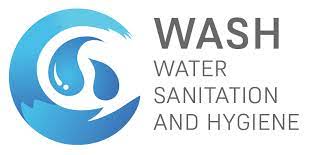|
WASH is an acronym that stands for Water, Sanitation and Hygiene. The purpose of providing access to WASH services include achieving public health gains, improving human dignity in the case of sanitation, reducing the burden of collecting drinking water for women, improving education and health outcomes at schools and health facilities, and reducing water pollution. The WASH Sector Coordinator for North-East, Mr Francois Bellet, has revealed that over five million people comprising internally displaced persons (IDPs), returnees, and the host communities in Borno, Adamawa and Yobe States are in need of water, sanitation and hygiene services.
Mr Bellet said this during a ceremony organized by the WASH Sector in collaboration with the Borno State Rural Water Supply and Sanitation Agency (RUWASSA), in commemoration of the 2024 World Water Day, held in Maiduguri, the Borno State capital. He said in 2023, about 1.6 million persons in Borno State were assisted with WASH, noting that from humanitarian perspective, safe drinking water is key to addressing acute vulnerability towards preventing vicious circle like malnutrition, and to ensure that women and girls do not go far to fetch water. The General Manager of RUWASSA, Engr. Mohammed Musa Aliyu, said the 2024 theme of World Water Day – ‘Water for Peace’ – resonates deeply with the challenges and triumphs witnessed so far, noting that throughout the peak of the Boko Haram insurgency, Borno State endured immense destruction of water facilities, amounting to billions of naira in losses. He said in response, the Borno State government under the leadership of Babagana Umara Zulum took a decisive action to restore water access by constructing waterworks and energy-efficient boreholes for domestic and agricultural use, thereby addressing food and general insecurity as evidenced by several irrigation schemes spanning thousands of hectares across the state. Represented by the director of administration, Hajiya Hauwa Anas, the RUWASSA boss said already several communities have started gaining their means of livelihood through farming, thereby becoming more peaceful and productive, justifying water as a vital tool for peace, and a major catalyst for sustainable development. In her remarks, the United Nations Children’s Emergency Fund (UNICEF) Chief of Borno Field Office, Phuong Nguyen, urged the gathering to consider for a moment the role that water plays in people’s lives daily. It is the cornerstone of our hygiene, our health, and our sustenance. From bathing to drinking, cooking to cleaning, water is indispensable. Access to clean water is not just a privilege; it is a fundamental human right. Any threat to this right is a threat to peace. Cooperation in the management and protection of our water resources is therefore essential for the well-being of all. Whether it’s ensuring access to safe drinking water or supporting agricultural endeavors, water is a prerequisite for human survival and development. Water is more than just a resource; it is a tool for fostering harmony and stability. Ensuring reliable access to water is paramount for peaceful coexistence in our communities, especially in regions like our own, where resources may be scarce. Source: Leadership.ng
0 Comments
Leave a Reply. |
